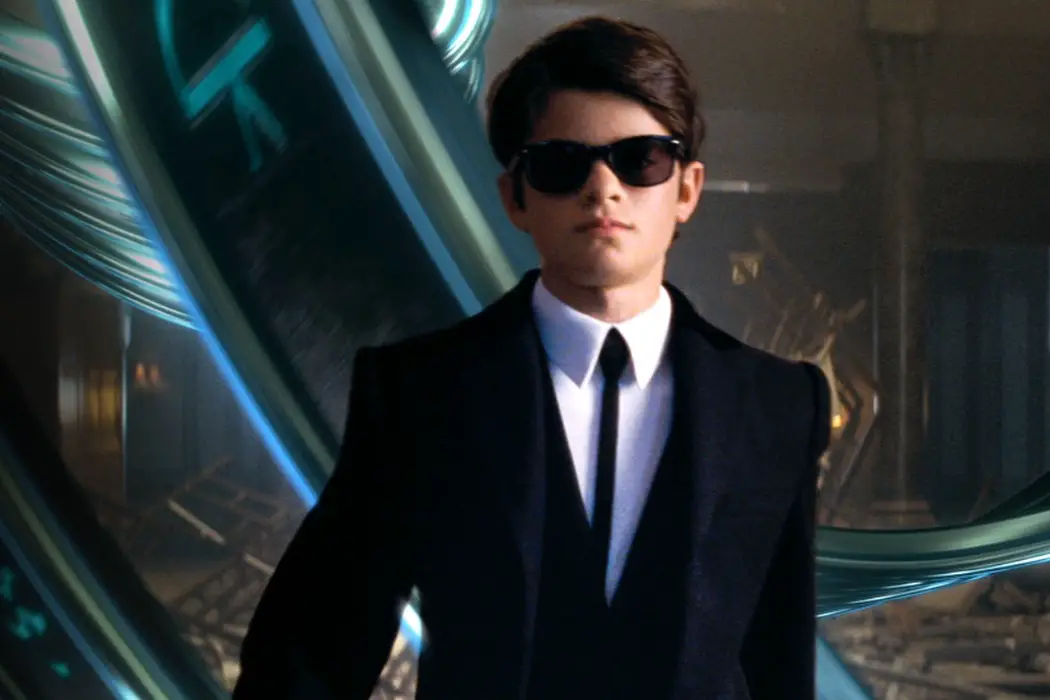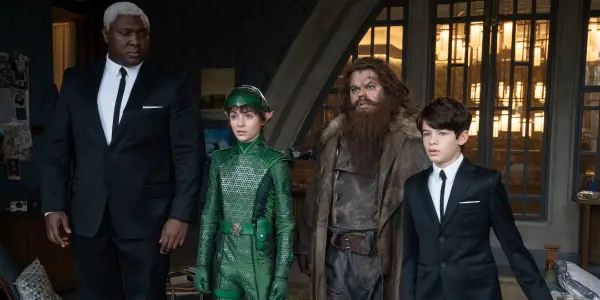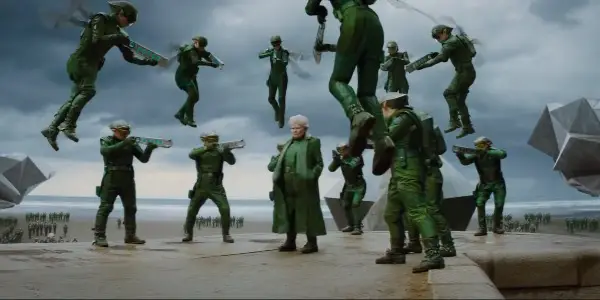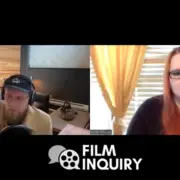ARTEMIS FOWL: Less Fowl, More Foul

Alistair is a 25 year old writer based in Cambridge.…
As soon as it was published in 2001, Eoin Colfer’s young adult fantasy novel Artemis Fowl was the subject of an intense studio bidding war – its tale of a young criminal mastermind and a fantastical underworld of mythical beings grabbing the attention of readers, like Tolkien’s brattier younger sibling. In the years since, it has gone from Harry Potter levels of ubiquity on children’s bookshelves to a new existence as a nostalgia item for older readers, most of whom are baffled as to why Disney has finally adapted the original novel twenty years too late.
A Fantasy World, Unexplored
I never grew up with the Artemis Fowl novels, but I can’t imagine anybody who did having an emotional attachment to Kenneth Branagh’s belated take on the franchise. Despite being a respected actor, his directorial projects always have the air of a “director for hire” project around them; he’s a competent, capable pair of hands who doesn’t lend anything particularly distinctive to each project he takes on. But here, that sheer unremarkable nature gives way to frustration. Gifted a fantastical world and an easily digestible mythology to explore onscreen, he instead chooses to focus solely on moving from one plot beat to the next, showing no interest in delving beneath what the story deems necessary.

The end result is as if Harry Potter turned up at Hogwarts five minutes into the first film, and Hagrid delivered an expository voiceover throughout to fill in the blanks explaining how the wizarding world works. It may be the closest analogue the YA genre has to Josh Trank’s Fantastic Four, although there is at least a coherence in the storytelling that makes it look less like an obvious studio hit job. But when it comes in at a brisk 95 minutes (a rarity for a studio franchise-starter), and does feature occasional glimmers of an expansive world beyond the narrative’s constraints, I wouldn’t be surprised if there was a more thorough realisation of Colfer’s novel lying somewhere on the cutting room floor.
Strip away the fantastical elements (which Branagh mostly does), and the plot is as simple as Colfer’s stated primary influence of Die Hard would suggest. 12-year-old Artemis Fowl II (Ferdia Shaw) is the son of a renowned criminal mastermind (Colin Farrell) and has the ego that comes hand in hand with such heritage. One day, his father is kidnapped by fairies, and he decides to take matters into his own hands, with an elaborate plan to get him back.
A Poorly Realised Mythology
Despite boasting a screenwriter of Irish origin (Conor McPherson, who co-wrote with Hamish McColl, whose credits include masterworks such as Mr Bean’s Holiday), this take on Artemis Fowl feels like the product of a Hollywood screenwriter who only had a one-line elevator pitch to work from. This is a fantasy world that should feel like a more action-oriented cousin to the films of Cartoon Saloon, the Irish studio behind Song of the Sea, who make films indebted to Irish mythology without ever flirting with a caricature. Instead, Branagh’s take on Artemis Fowl has Judi Dench telling a subordinate to “get the four-leaf clover out of here,” and yelling “top of the morning,” as if the writers’ only experience of Irish culture was a Lucky Charms commercial.

Dench’s take on an Irish accent sounds more like a gravelly-voiced chain smoker than it does anybody from the Emerald Isle, but it is at least a fascinatingly poor decision in a film that manages to make a story of criminals and mythical creatures seem ordinary. The only other misstep is characterising Artemis Fowl, who Colfer always stated was inspired by Hans Gruber, as a precocious, annoying little shit.
As portrayed by newcomer Ferdia Shaw, this Fowl is just plain foul, devoid of any anti-hero charm that would make him endearing. Introduced explaining to a teacher why he looks down on the world, before heading back to his mansion, McPherson and McColl’s screenplay seems to have identified his antagonistic characteristics, but offers nothing to counter this that would make him worth interested in. He’s just a spoilt rich kid.
Conclusion
Artemis Fowl may recount a story familiar to millions of readers, but it does so without the charm or interest in exploring the world it creates. Unlikely to convert any new fans to the series and even less likely to receive plaudits from old ones, this is instead a reminder that the written word can sometimes create more magic than even the highest budgeted studio tentpoles.
Artemis Fowl is streaming on Disney+ from Friday, June 12.
Watch Artemis Fowl
Does content like this matter to you?
Become a Member and support film journalism. Unlock access to all of Film Inquiry`s great articles. Join a community of like-minded readers who are passionate about cinema - get access to our private members Network, give back to independent filmmakers, and more.
Alistair is a 25 year old writer based in Cambridge. He has been writing about film since the start of 2014, and in addition to Film Inquiry, regularly contributes to Gay Essential and The Digital Fix, with additional bylines in Film Stories, the BFI and Vague Visages. Because of his work for Film Inquiry, he is a recognised member of GALECA, the Gay & Lesbian Entertainment Critics' Association.













